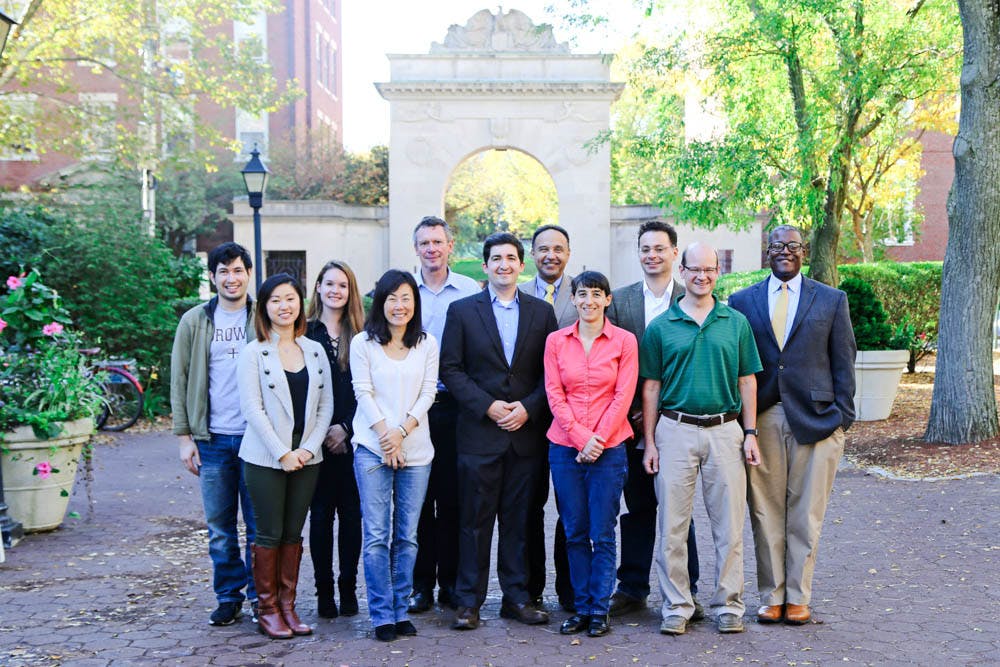A group of University engineers and chemists, led by principal investigators Assistant Professor of Chemistry Brenda Rubenstein ’07 and Assistant Professor of Engineering Jacob Rosenstein ’05, has received a $4.1 million award to analyze new ways to store data using synthetic molecules. The research team has already used 25 unique synthetic molecules to encode and retrieve an 81-bit image and plans to scale up its project with the grant. By using mass spectrometry, Ugi reactions and liquid mechanic robotics, the team aims to make molecular data storage an efficient reality.
“The primary advantage (of molecular storage) is that molecules are much denser — you can store them in a 3D volume,” Rubenstein said. “There’s much more information you can store in a much smaller volume.” She added that small molecules are easier to synthesize and model. The team will use Ugi reactions, which combine four components, to synthesize these molecules.
The team plans to complete all of the basic studies in three years, after which they will begin focusing on key aspects of the project, Rubenstein said.
The group’s research could have far-reaching implications as “everybody is producing a ton of data … more data than we know how to efficiently manage. There are a lot of people interested in alternative ways of storing and processing large amounts of data,” Rubenstein said. Today’s data is stored in two dimensions, but in a test tube it would be stored in three dimensions. Doing so would help search through large data sets much faster, he added. “We are going to make a hard drive in a test tube.”
Data storage as it exists today also relies heavily on magnetism, said Nick Chilton, a research fellow at the University of Manchester who is unaffiliated with the project. It was first identified that single molecules could implement magnetism to store data in 1993. “We’re in a bit of a new era where molecules are actually looking like it’s a feasible possibility to do these kinds of applications,” he added.
Senior Lecturer David Mills at the University of Manchester, who is unaffiliated with the project, spoke on the work of synthetic chemistry as a whole. Chemists have a list of molecules they are interested in designing and have recently begun working to bring them to fruition. “From a synthetic chemist’s point of view, it’s making quite beautiful molecules,” he said.
Rosenstein said that he appreciates the interdisciplinary nature of the project. “This is really an interesting project because it combines computing, data and information and chemistry. … It’s using chemistry to do the information processing.”
“I think this project is special to Brown. … Rosenstein and I (were) both Brown undergrads. … Here, you can readily knock on anybody’s door,” Rubenstein said. “That’s really what got this started. … It didn’t matter some of us were in chemistry and some of us were in engineering.”





